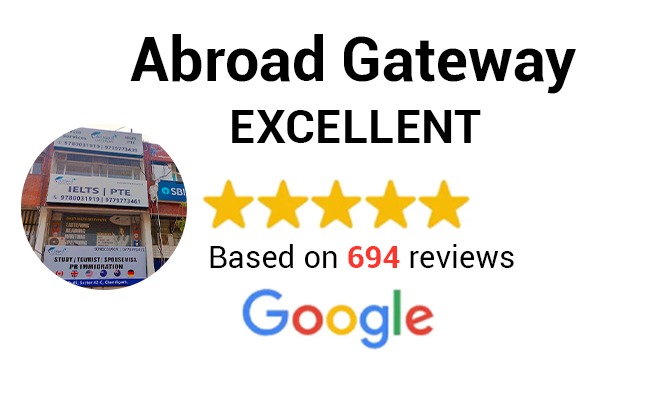Living abroad, whether to pursue studies, advance one’s professional career, or settle permanently, is a dream for countless individuals. The journey to achieving this goal begins with a crucial but often challenging stage: applying for a visa.
Obtaining a visa is often more complex than it seems. From selecting the right visa type and preparing accurate documentation to meeting financial and legal requirements, the process can be overwhelming. Even a small mistake can result in rejection, delays, or extra costs.
Working with an experienced visa consultant can make all the difference. They guide students through every step, ensuring their application is complete, accurate, and submitted on time, thereby maximising the chances of approval and providing peace of mind.
Understanding How Visa Applications Work
Before choosing to apply independently or seek a consultant, one must recognise how challenging the visa system can be.
1. Visa Options and Categories
Countries typically offer various visa options such as Student Visas, Work Permits, Permanent Residency (PR), Tourist Visas, and Visitor Visas. Each type has its own criteria, required paperwork, and processing schedules.
- Student Visa: A student visa usually demands evidence of admission, the ability to cover expenses, and language proficiency certificates (IELTS, PTE, TOEFL, etc.).
- Work Visa: A work visa involves submitting a job offer letter and relevant labour clearance documents.
- PR Visa: A Permanent Residency (PR) visa follows a points-based system and requires strict document verification, including proof of work experience, education, and language skills.
- Tourist Visa – Granted for short-term leisure or holiday travel. Applicants typically need to show a valid passport, proof of funds, travel itinerary, and return tickets to ensure they will leave the country after their visit.
- Visitor Visa – Designed for short stays to visit family, friends, or for business meetings. It often requires an invitation letter from the host, proof of relationship (if visiting relatives), financial documents, and ties to the home country.
2. Documentation and Legal Requirements
Applicants must provide comprehensive and accurate documentation, including financial records, travel details, educational transcripts, medical tests, and additional documents. Incomplete paperwork or outdated financial records can result in visa refusal.
3. Frequently Changing Regulations
Rules that were in effect previously may have changed, and using last year’s rules could lead to errors in your application. Following old guidelines might lead to inaccuracies in your application submission.
The Challenges of Applying Alone
Several candidates prefer to manage their applications without expert guidance, expecting it to be cost-saving. Although feasible, this approach carries significant risks. The common difficulties include:
1. Time-consuming paperwork and complex procedural requirements:
Visa forms often contain legal terminology that can be challenging for first-time applicants. Misunderstanding these terms may lead to errors, potentially delaying or jeopardising the application process.
2. Constantly updated immigration policies:
Regulations may be amended abruptly, and failure to stay informed may result in missing important modifications. Such changes can lead to delays, application rejections, or the need for costly corrections.
3. Risk of denial due to minor mistakes:
Even minor issues, such as a missing bank seal or an incorrect date, may lead to visa refusal. This emphasises that visa authorities are strict and pay close attention to details, so minor oversights can have major consequences.
4. Wastage of both time and money due to repeated applications:
Every refusal not only leads to the loss of substantial application fees, often hundreds of dollars, but also delays travel or settlement plans by many months.
5. Increased stress levels and unpredictability:
Applicants often experience considerable stress during the waiting period, which is further intensified by the absence of expert support. This added pressure can affect both decision-making and overall confidence in the process.
What is the Role of a Visa Consultant?
A visa consultant provides comprehensive support and expert guidance at every stage of the application process, with key responsibilities including:
- Profile evaluation: This assessment involves reviewing educational, financial, and professional credentials. This step helps determine the applicant’s eligibility and ensures that he or she is matched with the most suitable visa option.
- Identifying the correct visa category: Visa category selection involves choosing the most suitable pathway from student, work, permanent residency, or visitor, based on individual needs.
- Assistance with documentation: With expert support, you can avoid costly mistakes and guarantee that every document fulfils embassy specifications.
- Preparation of application: The application process requires a thorough review of forms, Statements of Purpose, resumes, and financial documents.
- Guidance for visa interviews: Interview training focuses on preparing applicants for interviews by building confidence, communication skills, and clarity of responses.
- Regular updates: Continuous updates provide applicants with transparent insight into the status of their application. This consistent communication ensures clarity, reduces anxiety, and helps in timely decision-making.
What is the Difference Between a Visa Agent and a Visa Consultant?
The terms “visa agent” and “visa consultant” are often used interchangeably, but they differ in expertise and responsibilities.
Visa Agent
- Handles basic, procedural tasks such as collecting documents, filling forms, and submitting applications.
- Usually works as an intermediary between the applicant and the embassy.
- Focuses more on the administrative side rather than providing detailed guidance.
- May not always have in-depth knowledge of immigration policies.
Visa Consultant
- Provides professional guidance and advice on visa categories, eligibility, and requirements.
- Helps applicants understand complex rules, prepare documents accurately, and avoid errors.
- Often stays updated on changing immigration laws and policies.
- Provides advice on financial documentation, Statement of Purpose, provide interview training, and assists you throughout the approval process.
Benefits of Choosing a Visa Consultant
The following points highlight why choosing a consultant is often the most prudent approach:
- Expert guidance: Visa consultants possess a thorough understanding of immigration rules, eligibility criteria, and application procedures. This reduces costly errors and boosts your chances of success.
- Personalised guidance: A consultant studies your profile, goals, and situation to suggest the best visa option for you. This targeted approach enhances both efficiency and outcomes.
- Accurate and complete paperwork: Consultants carefully prepare and review applications, preventing common errors that lead to rejections. Consultants assist in preparing essential materials—such as SOPs, cover letters, transcripts, financial records, and travel history.
- Greater chances of success: Consultants possess detailed knowledge of the factors leading to application rejections. This expertise significantly improves the likelihood of a successful outcome.
- Additional support services: Consultants guide in picking the right university or job, polish SOP and interview skills, and prepare students for departure with tips on housing, insurance, and travel.
Cost vs. Benefit: Is It Worth It?
Many applicants often express hesitation regarding the cost of consultancy services. This raises the critical question of whether the value they add outweighs the fee. Here is the answer:
While consultancy charges vary across countries and visa categories, they generally represent only a small portion of the total expense of studying or settling abroad. But the price of rejection can end up being much higher than hiring an immigration consultant from the start.
Misconceptions Applicants often have about Visa Consultants
Here are some common myths that need clarification:
- Consultants charge too much: In reality, they save you from rejections that cost far more in money and time.
- Manage independently: Although feasible, applicants without expert guidance face reduced success rates and greater procedural risks.
- All consultants are the same: This is incorrect. It is essential to select a licensed and reputable consultant with a proven success record.
How to Choose the Right Visa Consultant
To ensure you select the right visa consultant, consider the following factors:
- Certifications and approvals – Choose consultants who are government-licensed or professionally certified.
- Success rate – Inquire about their track record for your specific type of visa.
- Reviews and testimonials – Examine feedback from previous clients to gauge reliability.
- Transparency – Ensure there are no hidden fees and that all processes are clearly explained.
- Personalised approach – The consultant should tailor their guidance to your unique profile rather than applying a generic method.
Success Story: Riya’s Journey to Canada
Riya, a bright student from Chandigarh, faced visa rejection due to insufficient financial proof when applying on her own. She turned to Abroad Gateway, where our consultants helped restructure her documents, craft a strong SOP, and guided her through reapplication. Within three months, her visa was approved, and she is now pursuing her Master’s in Toronto.
Key takeaway: Expert guidance can turn setbacks into success!
Conclusion
Applying for a visa on your own is possible, but it is risky. Rejections, delays, and stress can easily derail your plans.
With Abroad Gateway, you get expert guidance, personalised support, and a smoother, faster path to approval. Save time, avoid mistakes, and start your journey abroad with confidence. Contact us today!






